A return to the scene of triumph, spaghetti legs, and Alan Kennedy’s clinical finish from 12-yards all led to the same destination: Liverpool’s fourth European Cup.
The year is 1984, the first Macintosh personal computer has been released, pound notes are to be taken out of circulation and the Reds find themselves in their fourth European Cup final.
The man who had led the club to three triumphs on the continent in the space of four years was no longer at the helm, with Joe Fagan stepping into the position vacated by Bob Paisley.
They were no easy shoes to fill and like Paisley, who was reluctant to follow after Bill Shankly, Fagan was hesitant to take the leap after the Englishman’s trophy-laden reign.
He needn’t worry, however, as 25 years after he first joined Liverpool as the reserve team coach, Fagan had defied the critics as he successfully defended Liverpool’s league title – the 15th in the club’s history – and the League Cup.
And it was on the continent where an unprecedented feat would soon arrive.
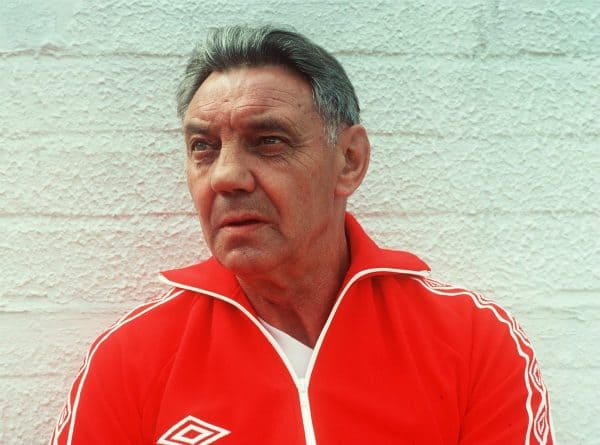
After notching the club’s third European Cup in 1980/81, in their third appearance in the final in five seasons, three years would then follow before the Reds made their return to the most prestigious stage in club football.
Liverpool met Denmark’s Odense Boldklub in the first round, securing a 6-0 win on aggregate following a five-goal thumping at Anfield in a fixture which was “very much a case of men versus boys” in the view of one Liverpool Echo reporter at the time.
Notably, the second leg at Anfield also marked the first game Phil Neal missed for Liverpool in 417 games, a run which dated back to December 1974.
Athletic Bilbao were next, with Ian Rush scoring the only goal in the two-legged tie as the Reds’ European experience proved decisive, before Benfica were swept aside 5-1 to set up a semi-final tie with Romania’s Dinamo Bucharest.
They were the last stumbling block on the road to Rome and the Reds won the first leg at Anfield 1-0 thanks to Sammy Lee, but it was Dinamo’s players who “went down as though permanently crippled every time they were tackled” which caught the eye.
A hostile 60,000 fans would await in Romania, but the likes of Graeme Souness and Ian Rush would stand up to the task to emerge as 2-1 victors, ensuring a return to the scene of the Reds’ first European Cup awaited.
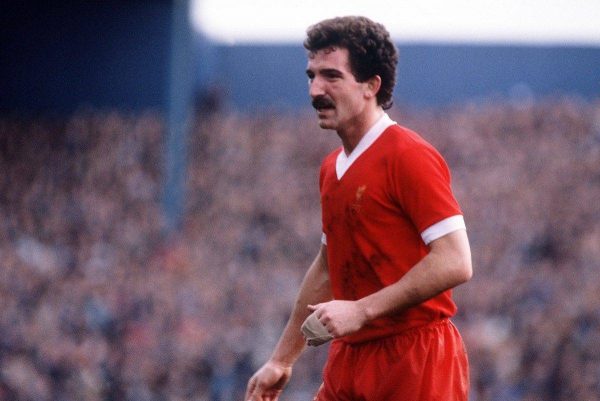
Concurrently, their opponents in the showpiece would overcome Gothenburg, CSKA Sofia, BFC Dynamo and Dundee United, in controversial circumstances, on their way to the final for the first and last time in what would be their home ground, the Stadio Olimpico.
‘Arrivederci, Roma!’
On May 30, 1984, Liverpool would lineup opposite Roma in their own backyard, one which pitted European royalty against novices.
Souness was the lynchpin in midfield, Mark Lawrenson and Alan Hansen solidified the defence and Kenny Dalglish and Ian Rush were a formidable attacking duo, with the latter scoring a career-high of 47 goals that season.
Despite their stature as Europe’s dominant force and all the experience which came with it, it would prove one of the sternest tests they would face.
Roma fans created a wall of noise and a sea of flares would dominate one’s view, but Fagan’s men remained composed in the face of hostility, one which had led to various violent incidents in the build-up.
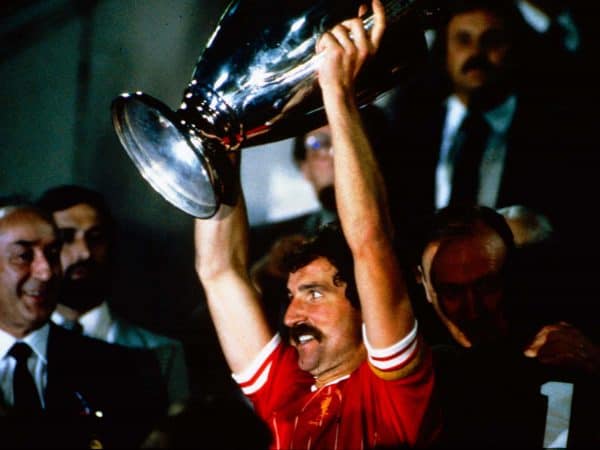
As the players lined up in the tunnel the Reds broke into song, Chris Rea’s ‘I Don’t Know What It Is But I Love It ’. Who knows what the Italians thought of it all, but one thing was clear, Liverpool’s relaxed state translated onto the pitch as within 14 minutes they had the lead through Neal – the only survivor of Liverpool’s 1977 team.
The Reds would be denied a greater buffer by Franco Tancredi in the Roma goal and while Fagan’s men were able to control the tempo, the Italians restricted the impact of the usually deadly Rush and Dalglish.
The ‘home’ side would then equalise on the cusp of half-time, with Roberto Pruzzo’s glancing header evading Bruce Grobbelaar’s reach to set up a nerve-wracking second half. But it would be the second and final goal in regulation time before extra-time came and went without either side finding the breakthrough.
The destination of the cup would be decided from 12-yards. Fagan would gather his chargers to alleviate some of the pressure, where he would also have an important one-on-one with Grobbelaar.
And Liverpool hearts went straight to their mouths as Steve Nicol blazed the opening kick over the bar, advantage Roma.
Agostino Di Bartolomei and Neal would both score as the pressure continued to build within the Stadio Olimpico and Grobbelaar added to the mix with his antics on the goal-line as Bruno Conti stepped up.
His wobbly legs raised eyebrows then but would soon become the stuff of legend as Conti was clearly put off as he fired over the bar, adding weight to Roma’s shoulders while alleviating the pressure on Liverpool.
Souness, who had “a deliciously phlegmatic performance,” put his side 2-1 up in what was his final Liverpool appearance before Urbaldo Righetti and Ian Rush both found the net to make it 3-2 to Fagan’s men.
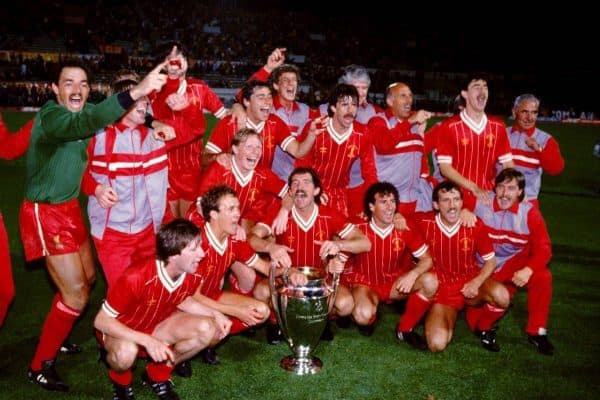
Grobbelaar then claimed his second victim as his ‘spaghetti legs’ caused Francesco Graziani to miss to set up Liverpool with the chance to win the game should they score their next penalty.
Alan Kennedy stepped up to the plate and a feeling of trepidation spread through both the squad and the fans, but they needn’t worry as he calmly tucked his penalty away to be the hero like he was in Paris in 1981.
Liverpool had won their fourth European Cup. A 100 percent record on the grandest stage remained and the Reds were the undisputed kings of Europe having won them all in the space of just seven years, only Real Madrid, six, had a better record.
The unprecedented treble was secured and the 1983/84 season would go down in history as one of Liverpool’s greatest-ever campaigns.
LIVERPOOL: Grobbelaar, Neal, Lawrenson, Hansen, Kennedy, Lee, Souness, Whelan, Johnston (Nicol), Dalglish (Robinson), Rush.

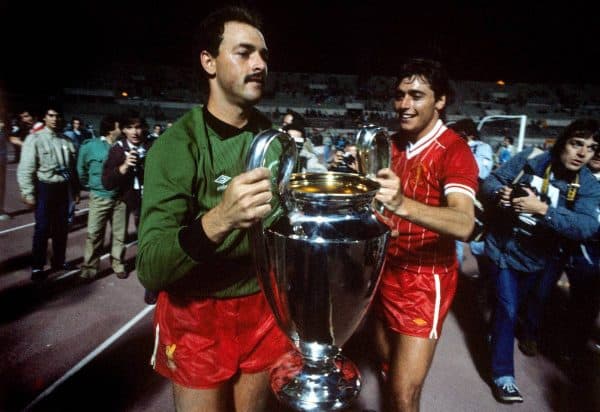

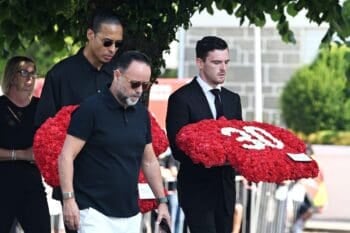
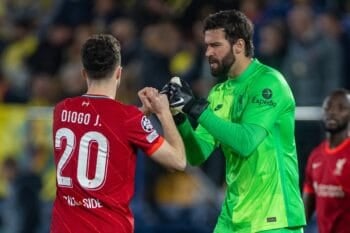
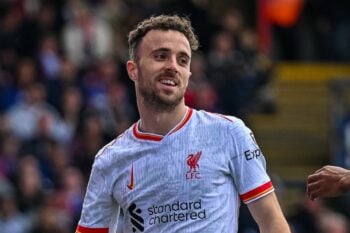
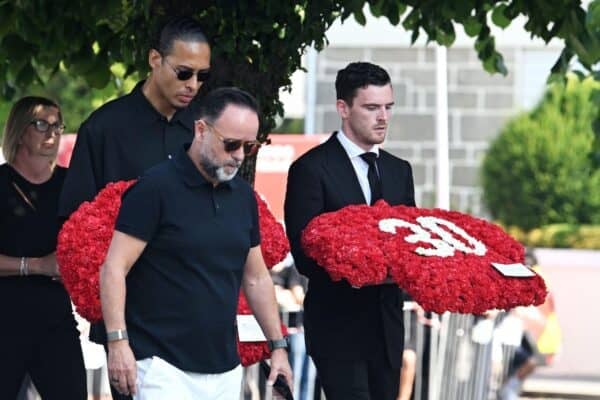
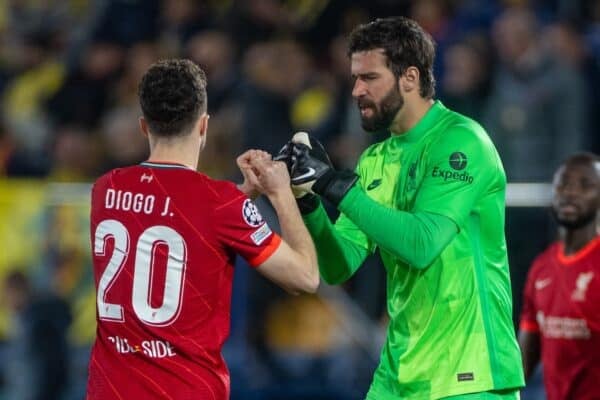
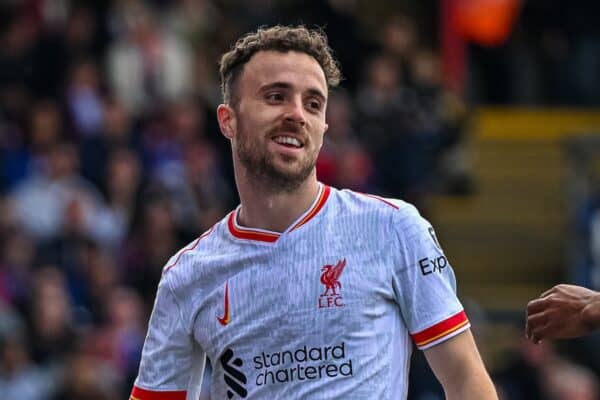
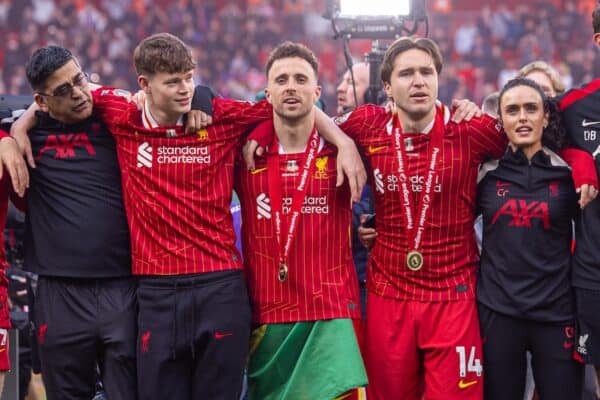
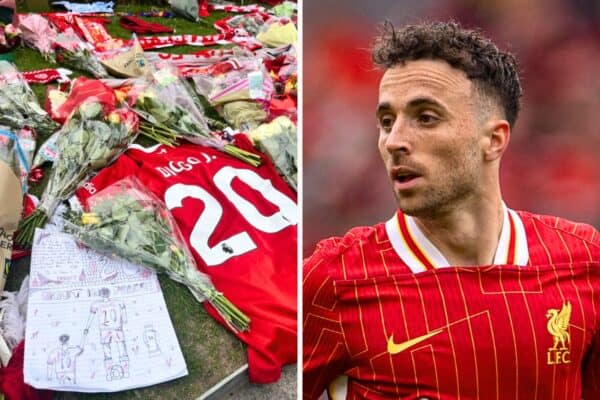
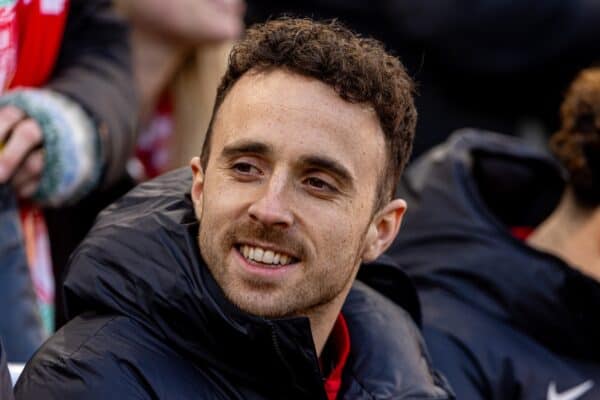
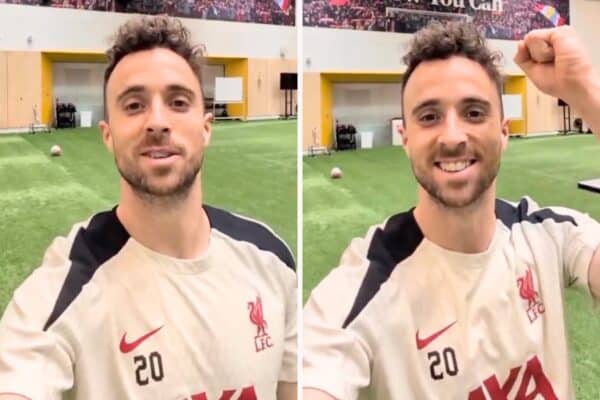
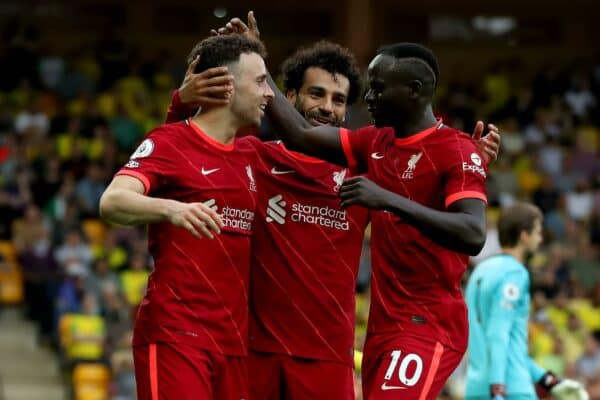



Fan Comments